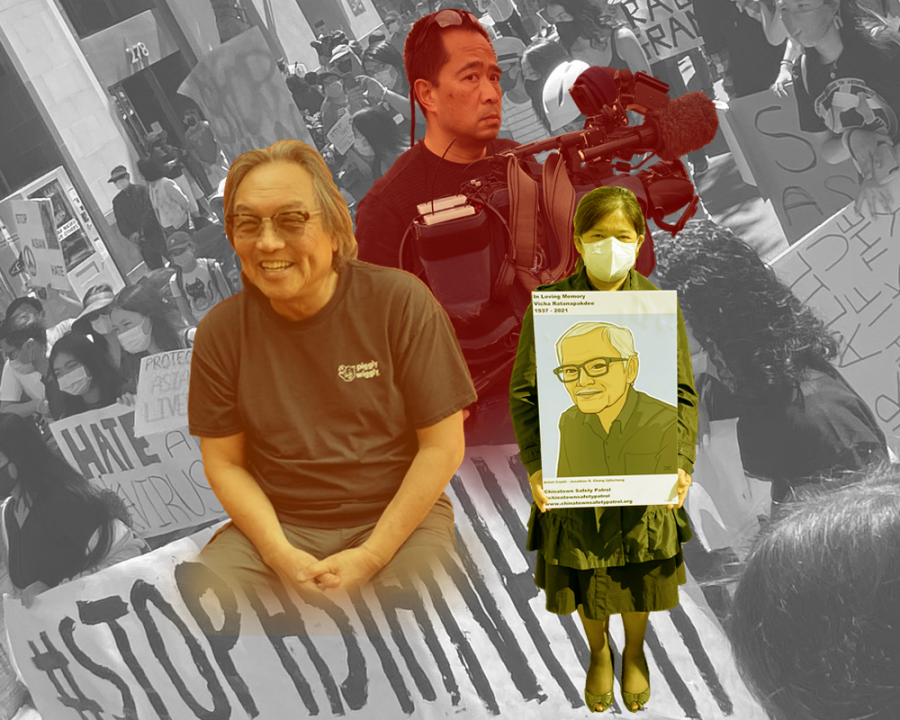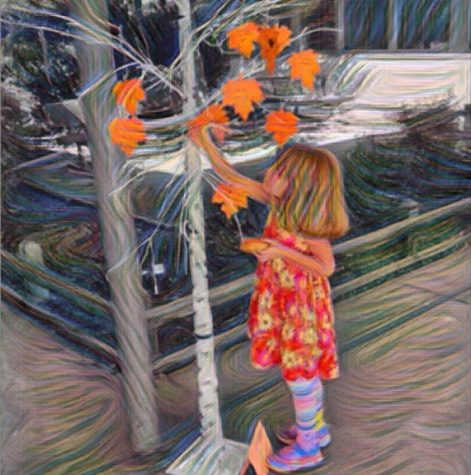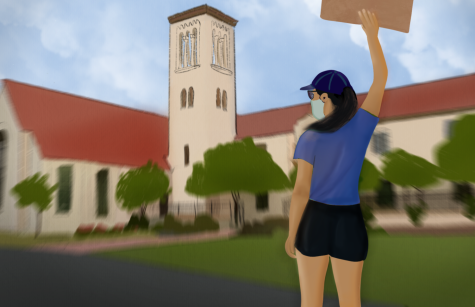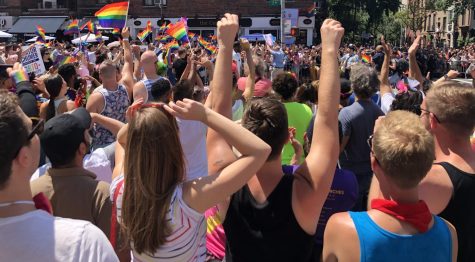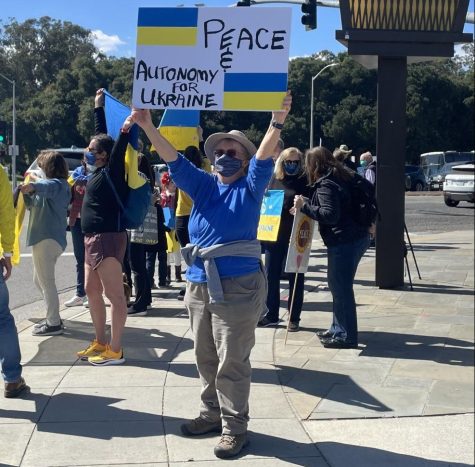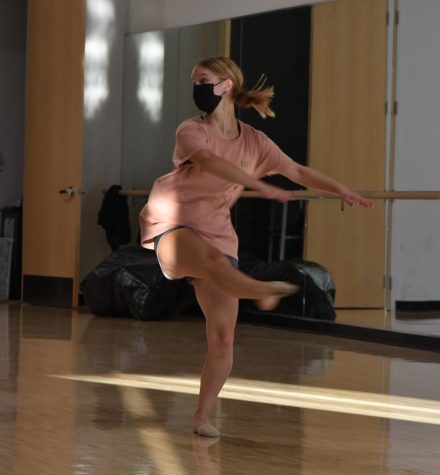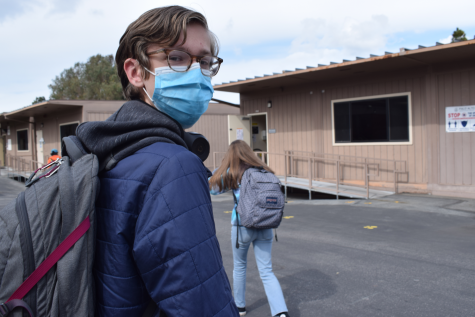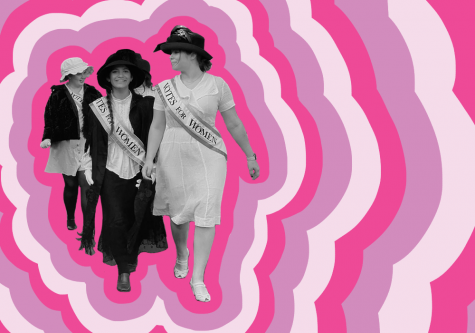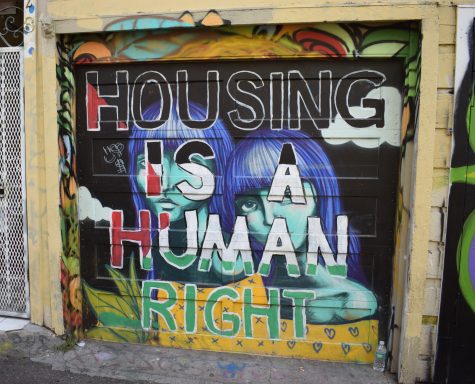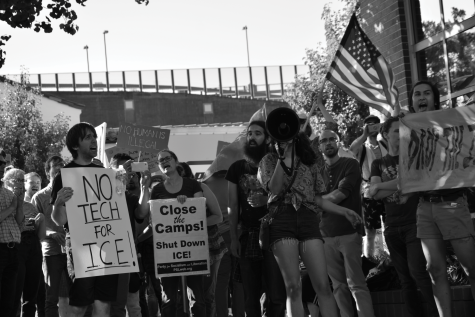Asian America
A grieving daughter. A veteran activist. A photojournalist. A series of profiles following the rise in anti-Asian hate crimes.
May 25, 2021
Monthanus Ratanapakdee
I first met Monthanus Ratanapakdee on a hot afternoon during a Bay Area Stop AAPI Hate protest in March. She carried a poster of a man I’ve seen on countless Instagram infographics: her father, Vicha Ratanapakdee, who was violently pushed onto the concrete and killed in January while on his morning stroll.
Monthanus Ratanapakdee works for the San Francisco Unified School District and is a wife and mother of two sons. She immigrated from Thailand in the 1990s to finish her masters at UC Berkeley. She came to love America because everyone was supposed to be equal. That has since changed, she said.
“Every day when I hear the news about Asian hate I drive past the spot where my father [went] down. I feel really sorrowful and my heart is so painful,” Ratanapakdee said. “I still have nightmares. I miss him every day. … My son right now is in 5th grade. I always thought that he would see my son graduate college. … I always talk to him and say ‘You will stay here 10 more years, you will see my son graduate’. … That morning he shouldn’t have seen Mr. Watson. He never came back again.”
Ever since her father passed away, Ratanapakdee has been going to Stop AAPI Hate rallies weekly, telling the story of her father. How the killer pushed him, went back to his car and then took a picture of the dead body.
“I think it was a hate crime,” Ratanapakdee said. “But they did not book him as a hate crime. … The [district attorney], Chesa Boudin, said Mr. Watson had a bad day and a temper tantrum. Is this [an] acceptable term for any victim and family? [The DA’s] duty is to help the victim to bring fair justice to the victim and their family, not to help the murderer.”
Since January the number of hate crimes has spiked, as reported by CNN. However, Racism against Asian Americans predates the former president and Covid-19. This is just the continuation of Asian Americans being scapegoated and outcast.
“I feel like we are treated differently and the solution has not been solved yet.” Ratanapakdee said. “Right now no one will help. The governor has not even addressed anything.”
Ratanapakdee feels that by speaking at rallies she will help spread awareness to keep the community safe, emphasizing the need to report incidents to the police, despite cultural and language barriers.
Although Ratanapakdee still carries the weight of losing her father and of the rising attacks against her community, she has hope in the movement.
“I think our Asian community is strong now. Everyone changed and stood up and spoke up now. We are united together and we can make a change, I believe that. We will not be silent anymore.”
Eddie Wong
The term “Asian American” was born in 1968 during the height of the civil rights movement and was established through the various pamphlets and magazines produced during that time.
One of these publications was called East Wind, a revolutionary magazine that featured writing from all around the nation. I first heard of Eddie Wong through this magazine, which he decided to revive digitally in 2018 from his Oakland home.
“I was just so frustrated by what was going on.” Wong said. “I was so angry about Trump and now that I’m retired I decided to do something. And for me that’s writing.”
Wong was especially active in the movement for Ethnic Studies at the University of California Los Angeles, establishing non-profits such as the “Center of Asian American Media,” making multiple films highlighting the Asian American community, and even campaigning for Jesse Jackson, the first viable African American presidential candidate and a leader during the civil rights movement.
“There has always been this history of Asians being foreigners and not belonging.” Wong said. “It’s all wrapped in to the fact that we live in a white supremacist culture thats never valued Black lives, Brown lives, Native Americans or Asians. Anyone who is not WASP [White, Anglo-Saxon Protestants].”
While many of the key demands from the Civil Rights Movement, such as racial equality, are still present in today’s Stop Asian Hate movement, Wong says that the movements are different.
“We were fighting for things like ethnic studies and social programs for the community.” Wong said. “You know back in the 60s and 70s we were like less than 1% of the population. Today we are 22 million nationally. … The other difference is that many more people are getting involved today because they are horrified by what’s happening because they are targeted,”
Wong says that there is an added element in how Americans portray their political enemies and how that affects the Asian Community.
“I feel like this period of hatred is going to last a long time. It partially has to do with the fact that China is perceived as an enemy. … Because people have this knee-jerk reaction to China and by extension anyone who looks Chinese. It takes so much education for people to realize that ‘No that’s China doing it.’ … We don’t think we should be attacked because of what they perceive China to be.”
When asked if he was hopeful for the future of the movement, Wong said that he was feeling hopeful, although “very cautiously.”
“What I’m hopeful about is that there is an upsurge of activity around young people. There is still a gap between the generations; the older activists are not communicating with the younger activists and there are a lot of lessons to be shared and learned.”
And while Wong has faith in the younger generation, real change is an uphill battle that takes time.
“A lot of community groups have called for more resources because the source of a lot of the tension is poor communities impacting each other.” Wong said. “The infrastructure for public and health really needs to be built up in this country to make a dent on that.”
“There’s so many resources in this society, [we] really [are] a wealthy country,” Wong said.
“But that doesn’t get shared equally and that’s the problem. We are always fighting each other for crumbs and that leaves a lot of tension across races and across classes. Until we deal with how to provide a society where people feel human we will be plagued with these problems. It begins with asking the questions why we have this system and what we can change about it.”
Brian Yuen
On most days, Brain Yuen is consumed by his job at the local CBS station, KPIX-5, as a photojournalist. By chance, I caught him on the job filming the “8by8 Stop AAPI Hate” protest in Palo Alto in May.
I remember asking him if pursuing journalism was a good idea, and he flat-out asked “Well, do you believe in the First Amendment?” Then he proceeded to make a joke about how any prospective journalist better truly believe in the freedom of the press because the pay was terrible.
So when I asked about his philosophy on journalism, I wasn’t surprised when he responded with;
“Be fair, be accurate, believe in the Constitution.” Yuen said.
“[my parents] loved America and that formed why I do what I do. …Our job is to stand up for the little guy who doesn’t have a voice … in this sense for the AAPI community. For the longest time, we haven’t had a voice, or at least it gets buried in all these stereotypes.”
A multi-Emmy-award-winning photographer, Yuen reflected on how covering this story has impacted him after a phone conversation with his mom in which she wanted to change her dentist simply because she was now afraid to walk in Oakland Chinatown.
“When you work in the media, you always think you’re kind of invincible,” Yuen said. “You have to do your job, and your job is to be objective and you pull yourself away from the story. But talking to my mom it kind of struck home.”
“[When] covering these rallies, there seems to be a lot more bonding going on between the people I interview …I can reach back and relate to my parents having fear and being able to ask the appropriate questions to relay to the public who may not understand.”
Yuen admits that the media has not been doing a perfect job in covering the anti-Asian hate crimes. For example, how most national news channels hesitated to label the Atlanta shooting, in which six of the eight killed were Asian women, as a hate crime.
“I don’t know if they have enough diversity in management but I know that’s changing,” Yuen said. “But are we changing fast enough? Time will tell. I remember our station ran some video, and I saw that they were using a video in an insensitive way. They said they would look into it and they did. I think they need diverse staff members that understand what it’s like to be part of a different culture.”
I asked Yuen if he was hopeful in the movement, and he was honest in his doubts.
“I’ve done this for a long, long time and I can sort of see patterns,” Yuen said. “One thing I always ask my interviewees is how to keep the momentum going. Because you have these protests and then they go away. And sometimes you don’t see change. … In our line of work we become very jaded because we see so many negative things, and for our survival, we put up a wall. I hope there will be change. I sort of leave it to all the activists to make the change and that’s why I’ll cover what they have to say.”
